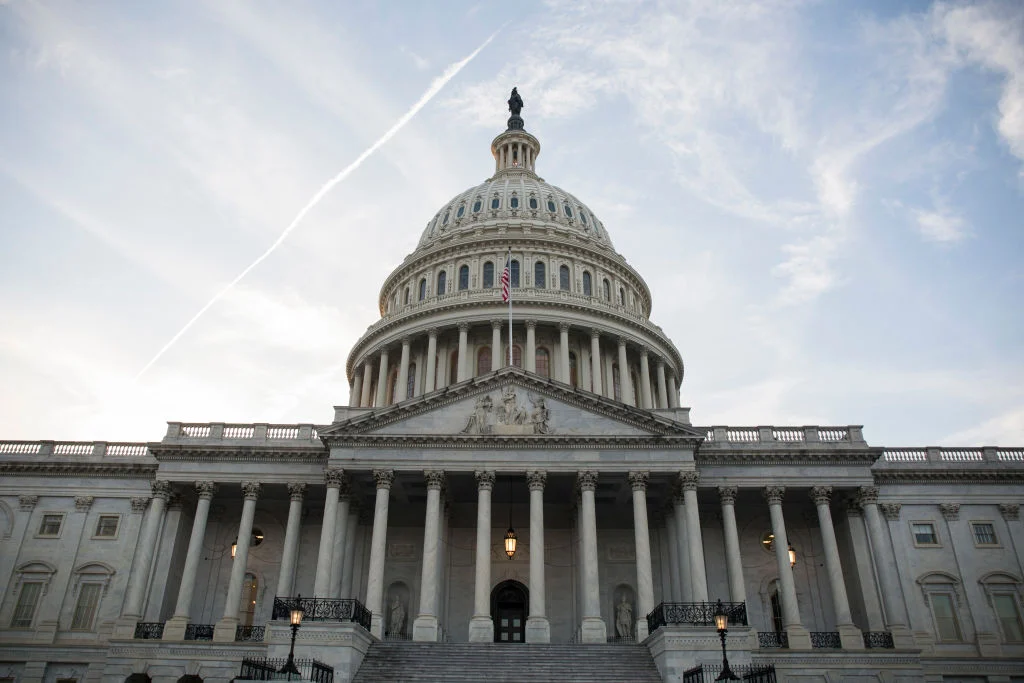The Hidden Provision in Trump’s New Bill: A Financial Windfall for Senators
Amid the political whirlwind in Washington, a peculiar provision nestled within legislation signed by President Donald Trump has raised eyebrows across the aisle. This provision could potentially enrich certain U.S. senators by up to $500,000. Let’s delve into the details of this contentious legislative inclusion and the reactions it has sparked.
Unveiling the Bill
On a seemingly routine Wednesday evening, President Trump signed the “Continuing Appropriations, Agriculture, Legislative Branch, Military Construction and Veterans Affairs, and Extensions Act, 2026.” This extensive 394-page document aimed to address government funding and related issues but concealed more than just budgetary allocations. Following the reopening of the federal government, Trump expressed a commitment to lower living costs and reinvigorate the economy, promising that Congress would continue its efforts for all Americans.
A Controversial Provision
However, the spotlight quickly shifted to a controversial clause buried within the legislation. This provision allows U.S. senators to claim up to $500,000 in statutory damages if their phone records are subpoenaed without their consent. This amendment raises questions about privilege, accountability, and the ethical implications of government officials safeguarding their personal communications.
Notably, this provision has garnered scrutiny as it directly pertains to eight Republican senators whose phone records were subpoenaed during investigations led by former special counsel Jack Smith. These investigations are linked to efforts to overturn the results of the 2020 presidential election, putting a spotlight on the options now available to these lawmakers for potential recompense.
Political Fallout
The Democratic response has been swift and scathing. Congressman Hakeem Jeffries, the Democratic leader in the U.S. House, did not hold back in his condemnation. He referred to the newly minted provision as a “multi-million-dollar slush fund,” highlighting a potential disconnect between the political elite and the average American.
During a House Rules Committee debate, he quipped, “They apparently believe they’re part of the House of Lords, because that’s something that would be done if you think you’re a Lord, not someone who is subject to the rule of law.” This sentiment encapsulates a broader concern that lawmakers are not just protecting themselves legally, but also financially, at a time when many constituents are struggling.
Real-Time Corruption?
Democratic leaders like Jeffries have characterized this move as “real-time corruption.” The juxtaposition of this financial safety net for senators against the backdrop of ongoing debates about the Affordable Care Act and healthcare funding has intensified criticism. Jeffries pointed out the stark irony, asserting that while Republicans can hardly find funds to enhance healthcare support for American families, they have managed to create a financial cushion for themselves.
Senator Lindsey Graham, one of the beneficiaries of this provision, reciprocated the criticism with a somewhat opportunistic stance, indicating that he would “definitely” pursue compensation should his phone records be subpoenaed without prior notice. His flippant remark about settling for $1 million raised further concerns among critics about the nature of this newfound entitlement.
A Growing Divide
Congresswoman Alexandria Ocasio-Cortez also voiced her disapproval, arguing that while lawmakers stand to gain financially, millions of Americans may face disenfranchisement regarding their healthcare. “It is unconscionable,” she stated, as she lamented the juxtaposition of enriching lawmakers against the dire economic challenges facing ordinary citizens.
Ocasio-Cortez emphasized the urgency of extending Obamacare tax credit subsidies for those who may be at risk of losing their health insurance or facing inflated premium costs. Her comments highlight a growing divide in priorities within Congress, raising questions about representation and accountability in governance.
Republican Dissent
On the Republican side, there is also discord. Mike Johnson, the U.S. House Speaker, expressed frustration over the provision’s inclusion in the government funding bill. He vowed to facilitate a standalone vote aimed at stripping this provision from the appropriations legislation, indicating a level of discontent even within his own party regarding the financial implications of this provision.
In an environment already fraught with political tension, this revelation serves as a poignant reminder of the sometimes opaque practices within legislative processes. The calls for accountability grow louder as constituents watch closely how their representatives navigate these murky waters.
Conclusion
The inclusion of a provision allowing U.S. senators to seek substantial financial compensation if their phone records are subpoenaed has ignited a firestorm of political backlash and public scrutiny. As lawmakers grapple with issues of health care, economic stability, and their own financial protections, the discussions surrounding this bill will undoubtedly shape the narrative leading into future congressional actions. In a landscape where trust between elected officials and the public is paramount, the consequences of this decision will unfold in complex and multifaceted ways.



